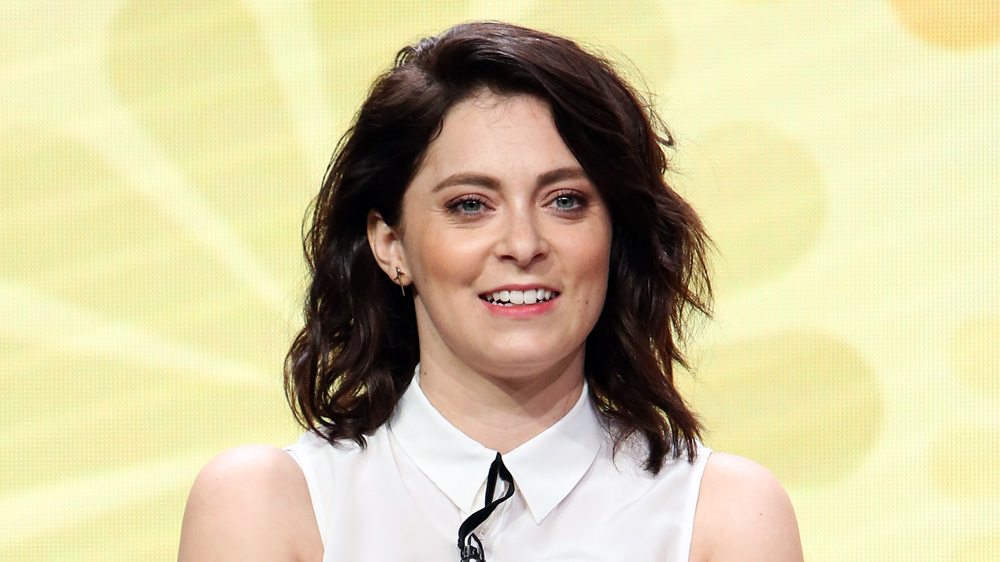Rachel Bloom, Carrie Ann Inaba & TV Execs on the Importance of Mentorship
By Danielle Turchiano
LOS ANGELES (Variety.com) – “Crazy Ex-Girlfriend’s” Rachel Bloom trained in a very “rigid” musical theater program at NYU because she told herself from a young age that her goal was to be on Broadway, but it wasn’t until she became a part of the Upright Citizens Brigade that she found something truly freeing about performing.
“I had examples of women all around me writing and performing their own material because the material was not out there in mainstream auditions,” Bloom said at the Television Academy’s evening of mentorship panels in Los Angeles, Calif. Tuesday.
The evening included short panels covering the importance of mentorship in a range of fields within the television industry, including Bloom’s area of writing and performing, as well as a comedy writing discussion between Paul Scheer and Dave Mandel, choreography with Carrie Ann Inaba, Mandy Moore and Eboni Nichols, and former NBC executives including Karey Burke, Lori Openden, Vince Manze, Jamie Tarses and Preston Beckman, who all worked with and were mentored by Brandon Tartikoff.
Bloom credited her first improv teacher, Shannon O’Neill, who she called “balls out funny and also supportive and not mean,” as well as others she met along the way who led by example, including Tami Sagher (who moderated the discussion at the Academy), Rebecca Drysdale, and Megan Neuringer. Bloom said she learned from watching women at UCB that she didn’t have to worry about failing — that she could just walk in and “just be myself and be ballsy in the way I’ve seen men be ballsy.”
And when her then-boyfriend and now-husband, Dan Gregor, worked on “How I Met Your Mother,” Bloom said she got a crash course in the writers’ room experience, which set the bar for the rooms she wanted to work in, let alone lead some day. “Pamela Fryman, who directed almost every episode of [the show] and is a genius would ask me, ‘How are you doing? How are your music videos going?” she recounted. T”hat was my first example of a set and tv writers’ room — you do not have to be mean or snarky to be a good writer [or] to be funny.”
Those who worked with Tartikoff said the experience left them with life lessons they still practice today. “Sometimes it’s not always someone telling you what to do — it’s bigger than that, it’s inspiration,” said Manze, co-founder and co-president of NBC Agency, said of Tartikoff’s mentorship.
Tarses recalled that Tartikoff always took the stairs three flights up to his office, even after he had fallen ill and “in spite of what was going on with him.” When she came back to NBC to pitch shows, she would always tell the writers she brought with her that they, too, had to take the stairs, in honor of Tartikoff but also because of the perseverance the action represented.
Other key lessons he imparted included “pitch a show in one sentence because that’s about as much as sales could understand,” laughed Beckman; “every show has to be someone’s favorite show,” said Burke; and “how he treated the press, how he treated the marketers, how he treated the suppliers,” said Openden.
Mandel praised his mentors Al Franken and Larry David; while working with David on “Seinfeld,” he said, he learned how to structure a script.
“Individual writers on a show should have a responsibility for their episode,” Mandel said. “If you were working on an episode, you’d be pitching the George story, the Jerry story, the Elaine… The writer would write his draft and in a perfect world bring that draft to table.”
It’s a way of working he has carried over into “Veep.”
“Usually we spend a couple of weeks talking about overall concepts, lay them into piles, and then I really try to send that writer off who has hit a certain area more than another writer,” he said. “It’s about trusting them to outline this thing to what they think it should be and then write it to whatever they think it should be.”
Inaba and Moore echoed Bloom’s sentiment about the importance of being kind and collaborative on either side of a mentorship. The choreographers met when working as dancers on a project in the early-90s, but Inaba later had a chance to bring Moore onto a project with her, as her assistant.
“We are like yin and yang, and it’s collaborative, and that’s the beauty of it — it doesn’t happen alone,” said Inaba.
Moore said she learned a lot on the technical side from Inaba about writing out charts and having multiple plans in case people change their minds. But on a deeper and more personal level, she said Inaba also taught her to “listen to my team and respect everyone.”
Inaba admitted that Moore taught her a lot, as well, especially about how to treat people. “She taught me you need to stop and you need to talk to people,” she said. “She would [say], ‘You just need to ask them where they’re from and that will start a conversation.’ She taught me how to be a person in this industry and how to have balance.”

